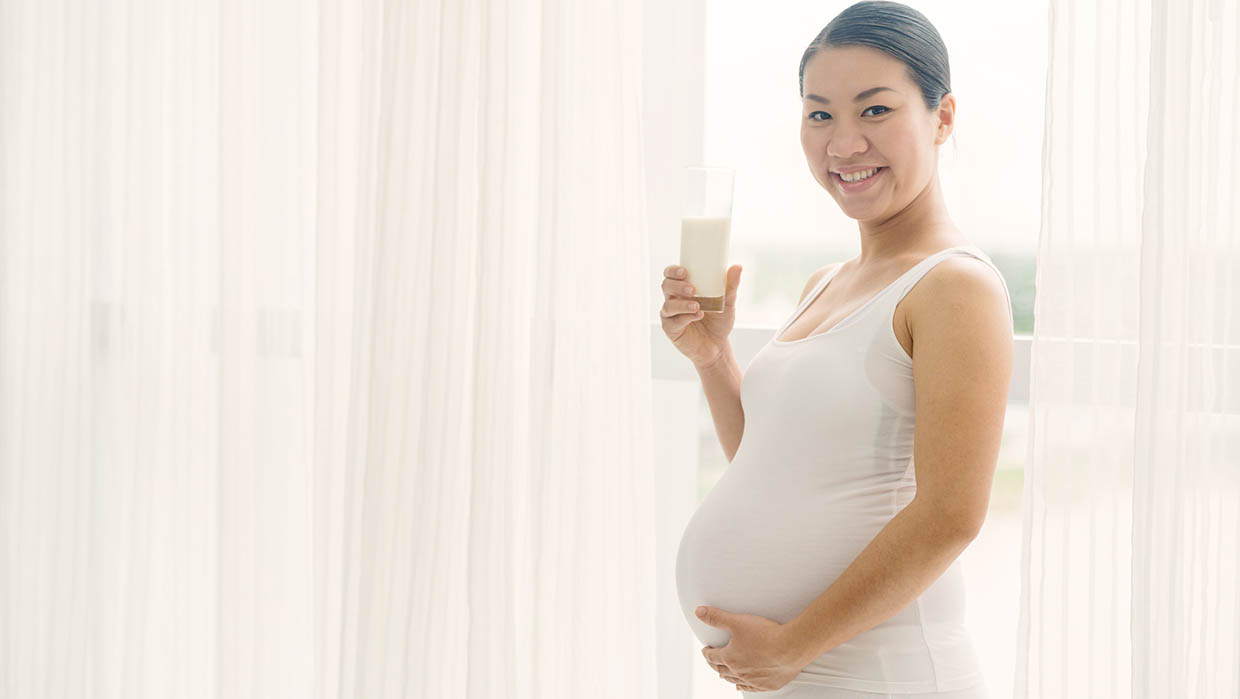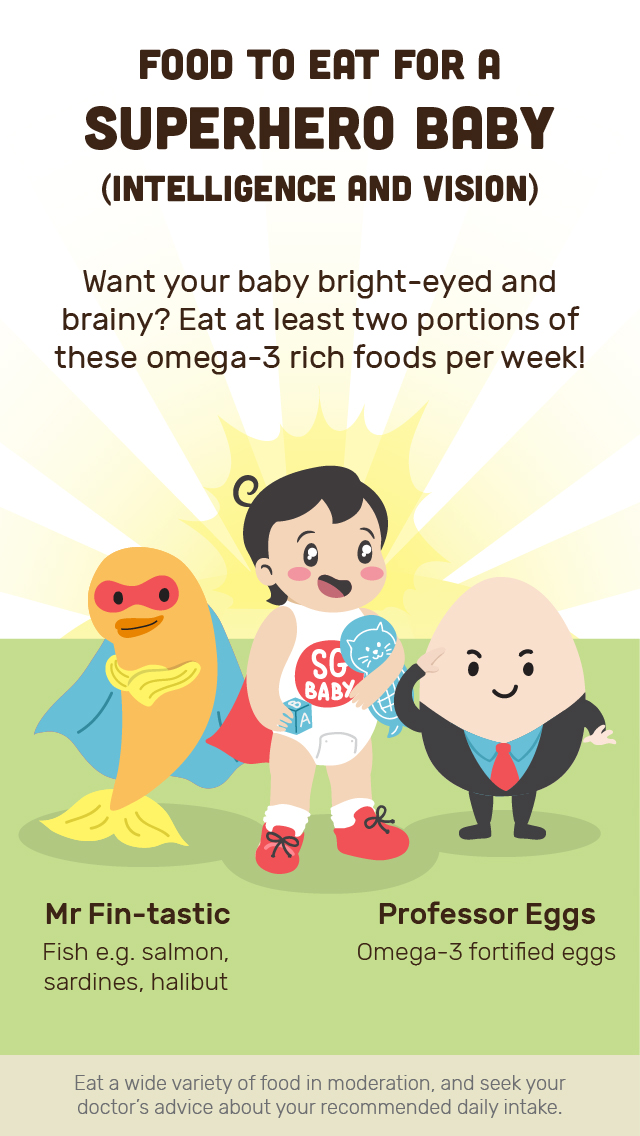Families For Life | Debunking 5 Common Pregnancy Food Myths

With pregnancy comes an overwhelming amount of advice and information that can be tough to navigate, especially when it comes to food.
At this stage of your pregnancy in week 13, you will have definitely received plenty of advice on what you should and shouldn't eat. But which are facts and which are just old wives' tales? Here are some of the most widely held, but untrue beliefs about pregnancy and food.
Myth 1: You should be eating for two
It's common to hear that since there are now two of you, it's cause to eat more and whatever you like.
Fact: Doing this will result in you gaining unnecessary weight that will be harder to lose later and which may also jeopardise both your and your baby's health. Instead, focus on the quality of your diet. Reduce fat, salt and sugar but increase your intake of whole grains, fruits, vegetables, legumes and low-fat dairy products. So lay off the prata and curry for breakfast and reach for some oats with fresh fruits instead.
Myth 2: Eating certain light-coloured foods will result in a fair baby
You may have heard that eating more bird's nest, tofu and soya bean products while avoiding dark-coloured food or beverages will result in a fair baby.
Fact: Skin colour is genetic and no food can change this. By avoiding certain food or food groups, you may not get necessary nutrients for your pregnancy. As for bird's nest, there's no clinical evidence to support that eating it will lighten skin pigmentation.
Myth 3: Some foods can cause a miscarriage
There's a belief that eating fruits like papaya and pineapple as well as those traditionally classified as "cooling" foods like grass jelly and green bananas may lead to miscarriages.
Fact: There are no documented cases of miscarriage from eating these fruits and food. Miscarriages normally occur due to infections or certain medical conditions. Eating healthy and well-balanced meals with food from all four groups — protein, fibre, carbohydrates, and healthy fat — will keep you and your baby healthy. If you're still worried about certain foods like pineapples, replace them with another type like honeydew so that you still get adequate vitamins, minerals and fibre.
However, do take note of improperly prepared foods that can increase your risk of illness during pregnancy. For a safer pregnancy, certain foods such as raw meat, unpasteurised milk, caffeine and alcohol are not recommended and should be avoided.
Recent studies written by James JE. at the BMJ Evidence-based Medicine 2021 journal, for example, have shown that caffeine increases risks during pregnancy and should be avoided completely.
Myth 4: Eating herbs and tonics will make the baby more intelligent
There are herbal teas and tonics that are marketed for pregnant women.
Fact: There is no medical and scientific evidence that supports this.
Myth 5: Full-cream milk is more nutritious
Some people may advice you to have full-cream milk as it's better than its low-fat/skimmed counterparts.
Fact: Low-fat and skim milk products have the same valuable nutrients that full-cream milk has, with less saturated fat making them the healthy and low-calorie choice for expectant and breastfeeding mothers.
Explore more
By Associate Professor TAN Thiam Chye Head & Senior Consultant, Dr Janice TUNG Senior O&G Resident, Department of Obstetrics and Gynaecology, KK Women's and Children's Hospital
Sources:
The New Art and Science of Pregnancy and Childbirth 2008, World Scientific
Healthy Start for your Pregnancy 2012, Health Promotion Board Singapore
Copyright © 2016 HealthHub.sg. All rights reserved.